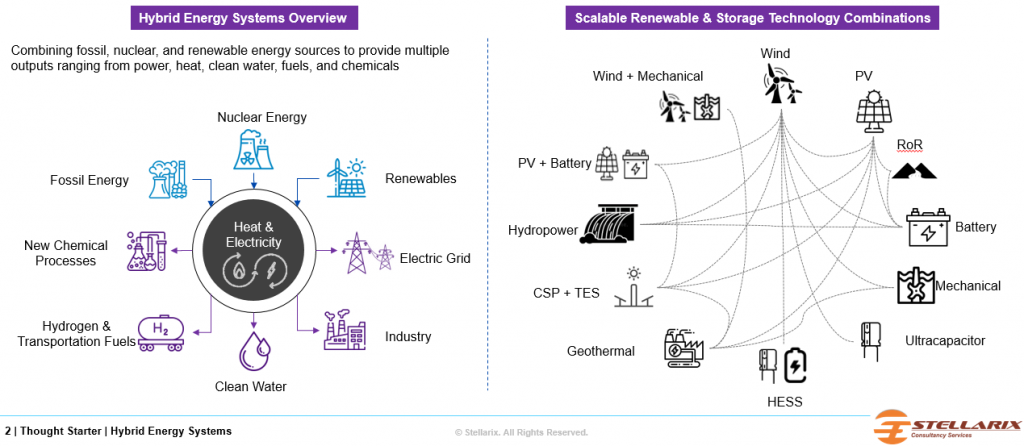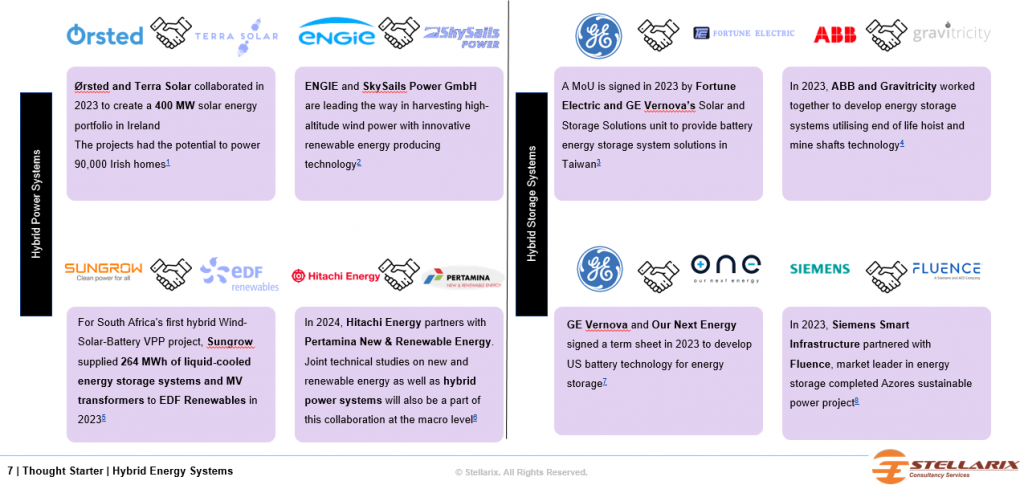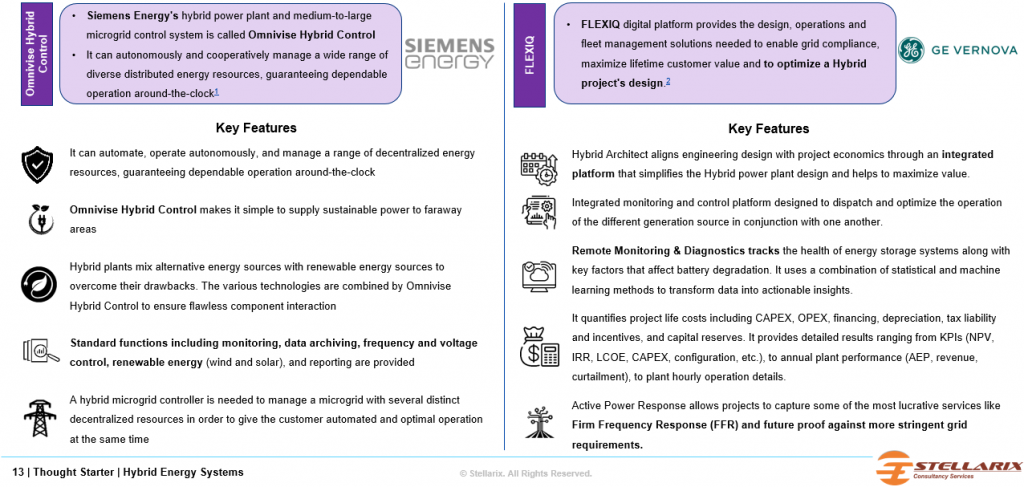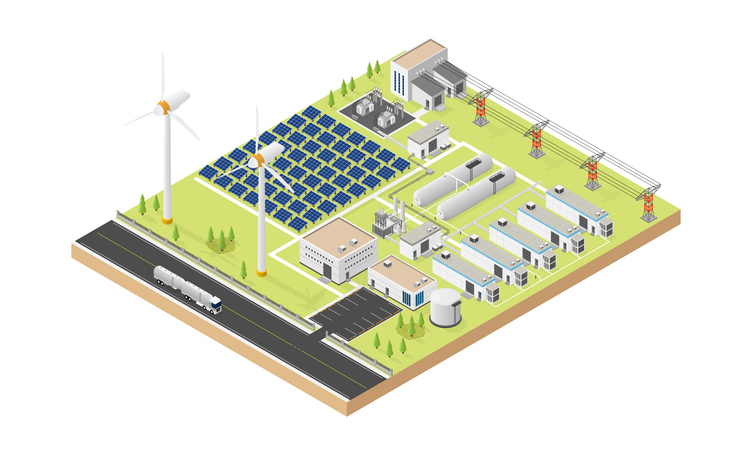Hybrid Energy Systems: Renewable Technologies For Stability
Hybrid Energy Systems (HESs) combine multiple energy generation and/or energy storage technologies, improving the overall benefits compared to a system that depends on a single source. HESs are a great alternative as they provide durability, practicality, and cost-effectiveness. They use the current energy infrastructure by including additional components to reduce costs, negative environmental effects, and system interruptions.

Figure 1: Hybrid Energy Systems Overview, Scalable Renewable & Storage Technology
The global market for hybrid power generation systems was valued at 7.5 USD Bn in 2023 and is projected to reach 13.26 USD Bn by 2032 at a CAGR of 6.7%. The drivers boosting the market are reduction in carbon emissions, policies, and mandates, community environmental impacts, energy storage cost reduction, etc. Preventing unnecessary energy losses and network congestion, and growing interest in the Internet of Energy are some of the trends that can be seen in the hybrid power system. The global market for hybrid storage systems was valued at 16.35 USD Bn in 2023 and is projected to reach 25.82 USD Bn by 2032 at a CAGR of 6.3%. Focusing on second-life batteries and circular economy practices, high renewable integration, and the improvisation of the storage capacity and lifetime of the plant are the driving forces that contribute to the hybrid storage system.

Figure 2: Hybrid Power and Storage Systems
- ‘In 2023, With the announcement of the 700 MW hybrid green energy project’s commissioning, Adani Green Energy established the largest portfolio of renewable energy projects in India’In 2023 with the announcement of the 700 MW hybrid green energy project’s commissioning, Adani Green Energy established the largest portfolio of renewable energy projects in India
- To reduce primary control power costs, AEG developed a hybrid storage system in 2023 that combines battery energy storage and power-to-heat for energy storage applications
- Siemens Energy has been awarded a project to build a hybrid power plant in French Guiana. This project utilizes solar power to generate climate-neutral electricity
- Panasonic developed the EVERVOLT® (Home Battery System) for a modular residential storage system that supports both DC and AC coupling, making it a flexible option for both new and old solar installations
- Around INR 3,500 crore has been invested by Engie India in its 700 MW renewable energy projects slated to be commissioned by 2025
- Ørsted and Terra Solar collaborated in 2023 to create a 400 MW solar energy portfolio in Ireland. The projects had the potential to power 90,000 Irish homes
- In 2024, Hitachi Energy will collaborate with Pertamina New & Renewable Energy. Joint technical studies on new and renewable energy, as well as hybrid power systems, will also be a part of this collaboration at the macro level
- GE Vernova and Our Next Energy signed a term sheet in 2023 to develop US battery technology for energy storage
- A MoU was signed in 2023 by Fortune Electric and GE Vernova’s Solar and Storage Solutions unit to provide battery energy storage system solutions in Taiwan

Figure 3: Hybrid Power and Storage Systems
- Omnivise Hybrid Control: Siemens Energy‘s hybrid power plant and medium-to-large microgrid control system is called Omnivise Hybrid Control. It can autonomously and cooperatively manage a wide range of diverse distributed energy resources, guaranteeing dependable operation around the clock. Hybrid plants mix alternative energy sources with renewable energy sources to overcome their drawbacks. Omnivise Hybrid Control combines the various technologies to ensure flawless component interaction.
- FLEXIQ: The FLEXIQ digital platform provides the design, operations, and fleet management solutions needed to enable grid compliance, maximize lifetime customer value, and optimize a hybrid project’s design. The hybrid architect-integrated platform aligns engineering design with project economics to simplify the hybrid power plant design and helps to maximize value.

Figure 4: Hybrid Energy Systems Emerging Technologies
Let's Take the Conversation Forward
Reach out to Stellarix experts for tailored solutions to streamline your operations and achieve
measurable business excellence.



